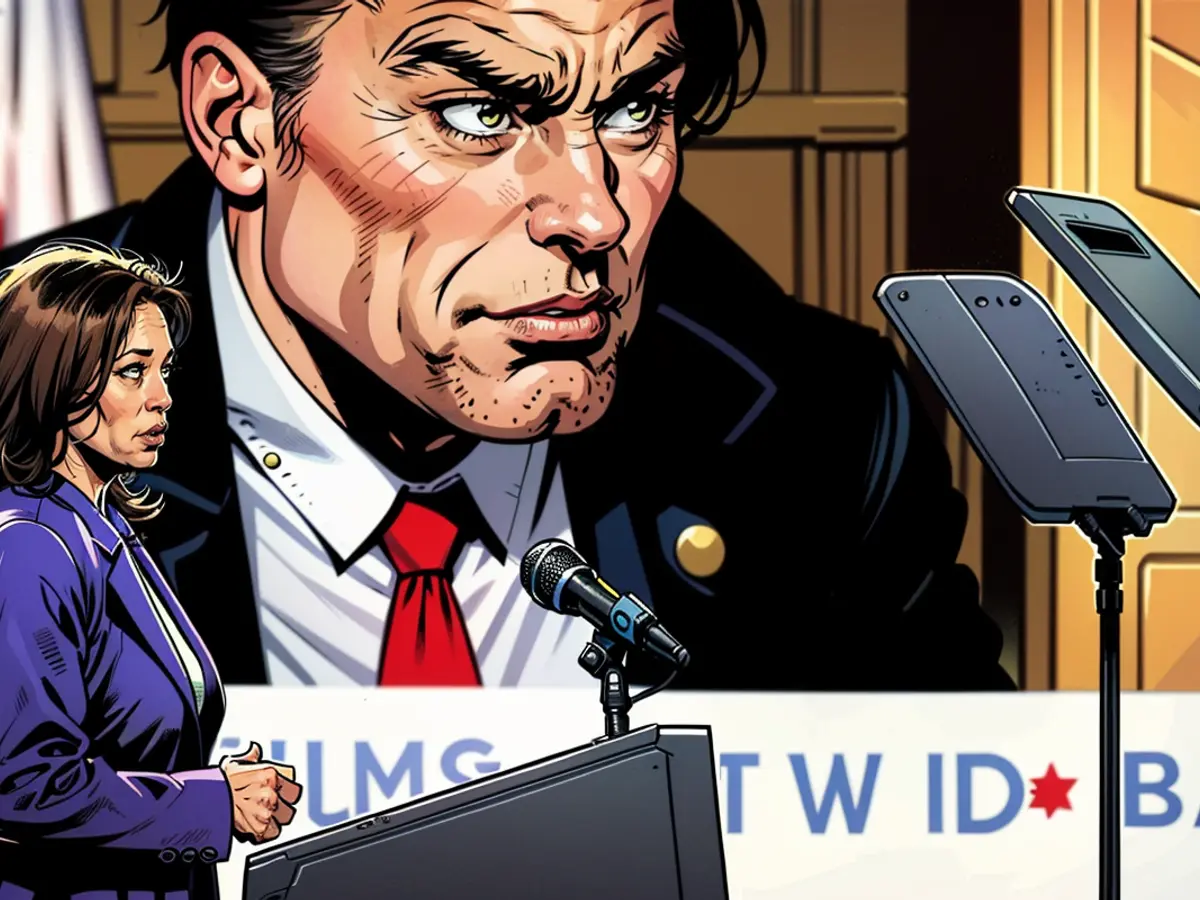Trump's favorable ratings causing discomfort among certain Democratic circles
For a few weeks, it seemed like Vice President Kamala Harris could shake up the presidential race. However, now, former President Donald Trump appears to have regained the lead. Certain polls suggest that some black men are drifting away from the Democratic party.
Just hours before his first appearance, Former President Barack Obama is less than enthusiastic. "You come up with a bunch of reasons and excuses, and that's a problem I have," Obama states in a Democratic campaign office in Pittsburgh. "Because it makes me think, and I'm talking to men, that you don't want a female president, and you come up with other reasons for that."
Consider this: Instead of simply appealing to potential voters and "winning" their vote, as presidential candidate Kamala Harris puts it, Obama accuses black male voters of being sexist. "You're thinking about sitting someone out or even supporting someone who has disrespected you in the past?" the former president asks, alluding to Trump. "Because you think that's a display of strength? Because that's what being a man is supposed to mean and look down on women?" No, that's unacceptable, says Obama. In his upcoming campaign speech, the former president will not repeat these comments about black men. He doesn't need to; they've already made headlines.
Obama's frustration stems from poor polling results and perceived lack of enthusiasm compared to his 2008 presidential campaign. Harris started off strong after Biden's withdrawal, with positive feedback from voters. But three weeks before the election, her prospects don't look so bright. Her opponent, Donald Trump, is giving her a run for her money, leading in six of the seven crucial battleground states. The trend is leaning toward the Republicans. A voter group that's doubtful of Harris more than the Democrats anticipated are black men.
Harris' Charm Offensive
Obama became the first black president in 2008, setting high expectations that he mostly didn't meet in his eight years. In 2012, he believed Hillary Clinton was a better candidate than Joe Biden, but she lost to Donald Trump. Biden entered the race in 2020 and succeeded against the Republicans with a historic term. According to the Democrats, his vice president, Harris, should build upon that.
Harris is now launching a charm offensive. She addresses questions about her vision for black voters, often mentions them in her speeches, and makes corresponding promises. This includes microloans for small businesses, specialized training opportunities, and a "National Equality Initiative" in healthcare. Black Americans are disproportionately affected by diseases like diabetes, cancer, and mental illness due to unfavorable living conditions. Households of black families have the lowest median incomes in the U.S. But black people make up about 14 percent of eligible voters.
Many Polls, Many Explanations
The candidate's proposals appear to target voters who are questioning what four years of Democratic rule have brought them and those she wants to get back to the polls.
Four years ago, Joe Biden won the election with support from various population groups. Among them were 90 percent of blacks. Since last week, when the "New York Times" published a poll showing that "only" 78 percent of blacks would vote for Harris on November 5th, but 15 percent supported Trump (among men: 70 to 20 percent), many U.S. media outlets are discussing the Democrats' problems.
There are numerous possible explanations for these poll numbers among blacks, from financial concerns to amusement over Trump's antics. Perhaps the percentage points for Trump mean less than some U.S. media outlets make of them. Poll results among blacks at this point in the campaign are common, but the final results are usually better for the Democrats, according to the head of the BlackPAC campaign organization. This is supported by the current poll from another source. However, this may not reassure the Democrats too much, as Harris' poll numbers at this point are significantly worse than those of Hillary Clinton in 2016 or Joe Biden in 2020.
Despite Obama's criticism, Former President Donald Trump continues to gain support, potentially threatening Vice President Kamala Harris' lead in some polls. The trend towards Republican-leaning candidates is particularly noticeable among black men, a voter group that has traditionally supported Democratic candidates.








